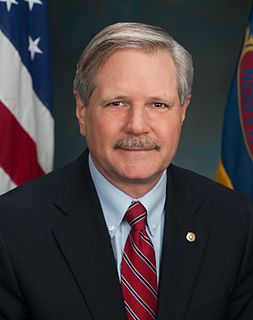A Quote by Tom Steyer
Tar sands oil is dirtier, more corrosive, and worse for the environment than conventional oil.
Quote Topics
Related Quotes
Bitumen is junk energy. A joule, or unit of energy, invested in extracting and processing bitumen returns only four to six joules in the form of crude oil. In contrast, conventional oil production in North America returns about 15 joules. Because almost all of the input energy in tar sands production comes from fossil fuels, the process generates significantly more carbon dioxide than conventional oil production.
Probably no single event highlights the strength of Campbell's argument (on peak oil) better than the rapid development of the Alberta tar sands. Bitumen, the world's ugliest and most expensive hydrocarbon, can never be a reasonable substitute for light oil due to its extreme capital, energy, and carbon intensity. Bitumen looks, smells, and behaves like asphalt; running an economy on it is akin to digging up our existing road infrastructure, melting it down, and enriching the goop with hydrogen until it becomes a sulfur-rich but marketable oil.
The oil corporations spend a lot of money to get, say, the tar sands pipeline through, but nobody's - you know, there are definitely environmentalists being paid - but a lot of people are acting for something other than financial compensation. So if the tar sands pipeline doesn't get made, it's because a huge amount of people are doing something that doesn't involve remuneration, money, etc., because we're not actually the self-interested financial instruments that economists like to imagine we are.
Ramesh Ponnuru and others say Obama is a conventional liberal. But conventional liberals don't come out for the release of the Lockerbie bomber. Conventional liberals don't return the bust of Winston Churchill from the Oval Office. Conventional liberals don't block oil drilling in America while subsidizing oil drilling in Brazil.
We need to ask elected officials supporting Keystone XL whether they're willing to put their constituents and our environment at risk so that foreign oil tycoons get a better return on their tar sands investments. Keystone XL backers will keep trying to sell us a sucker's deal; it's up to us to say no.
I can at once refute the statement that the people of the West object to conservation of oil resources. They know that there is a limit to oil supplies and that the time will come when they and the Nation will need this oil much more than it is needed now. There are no half measures in conservation of oil.
Instead of giving preference to oil imported from overseas, Washington should look to North American coal, oil shale and oil sands, all of which provide an affordable, abundant and alternative source of fuel. In addition to increasing cost effectiveness options for the government, it will also increase America's energy security.
































